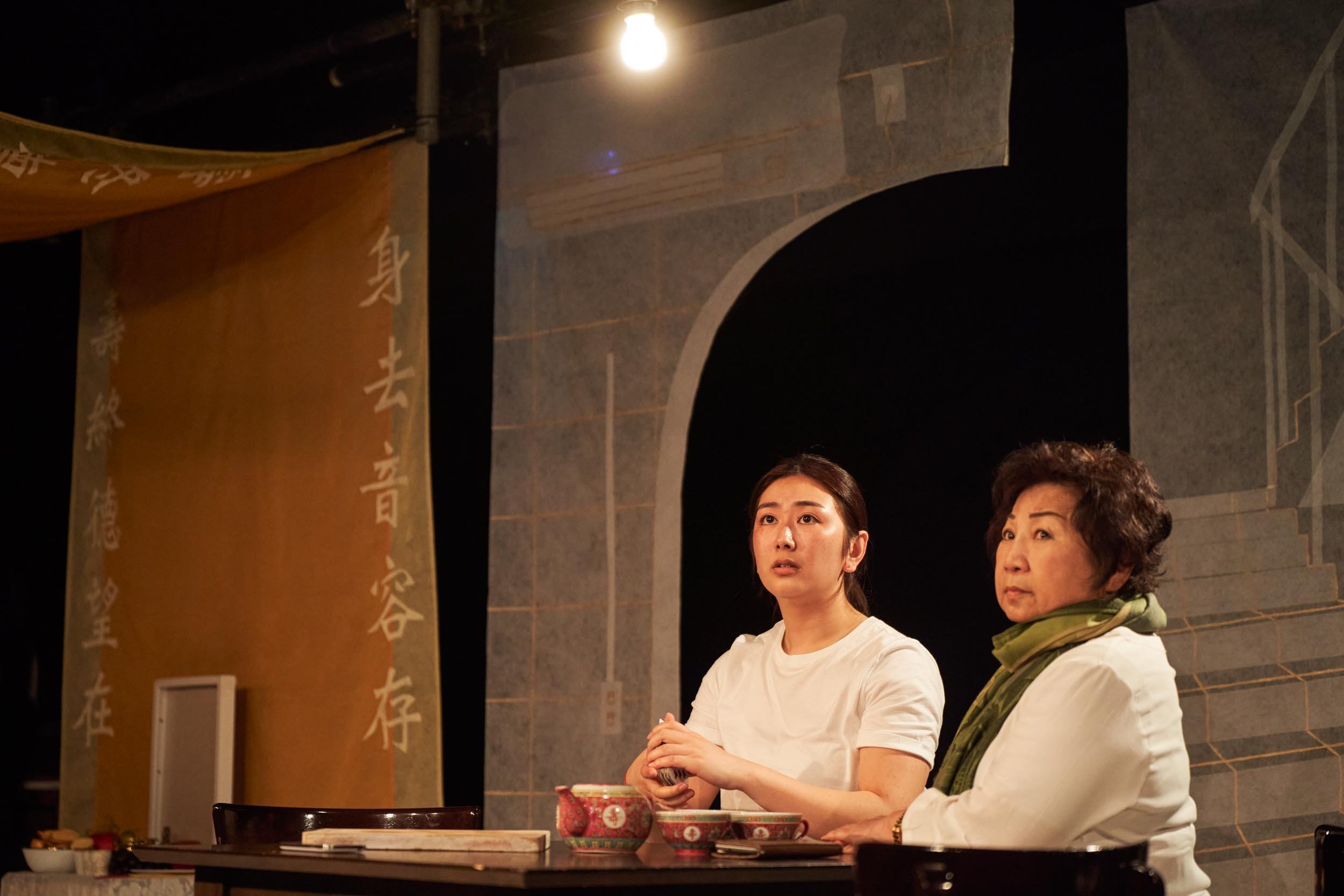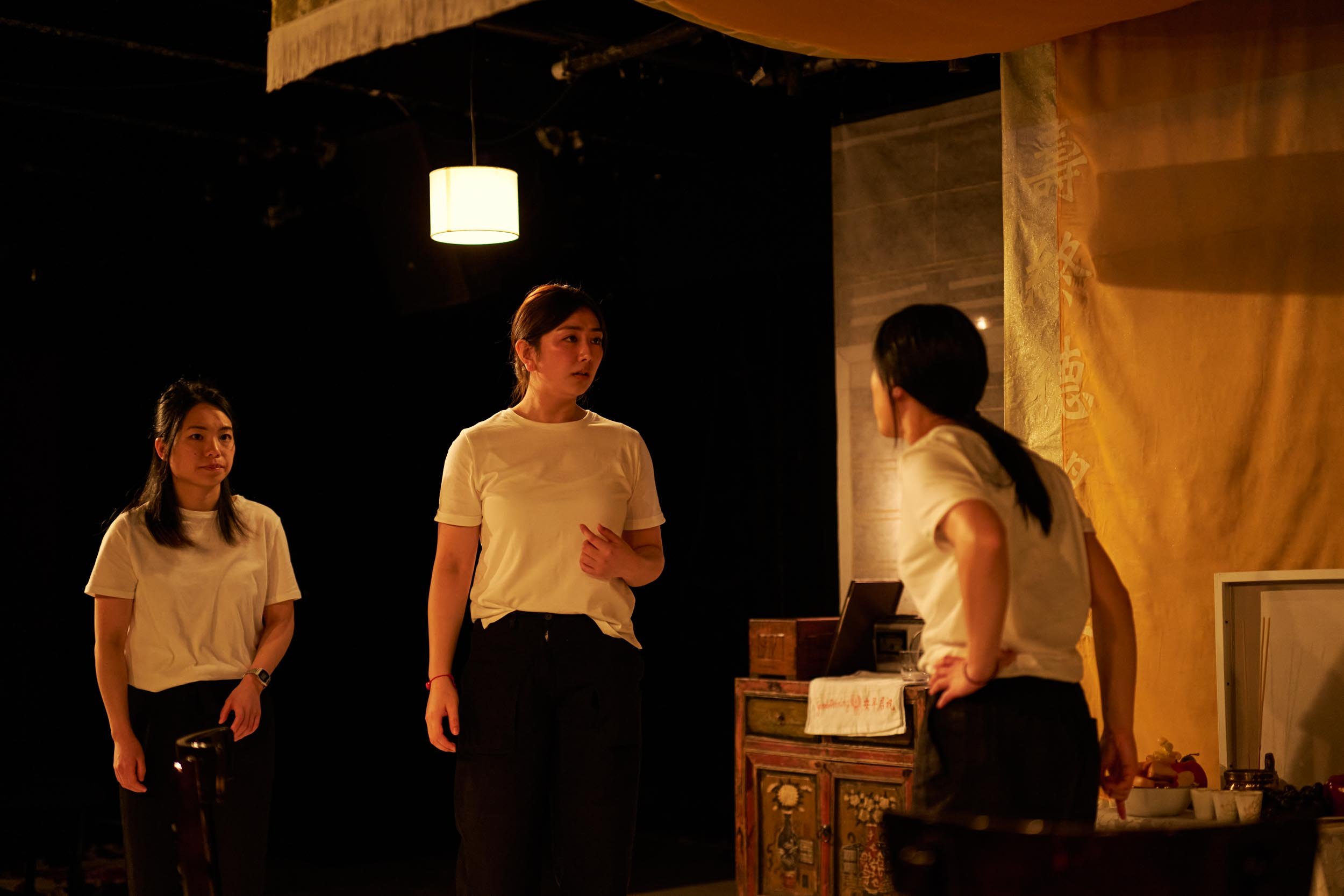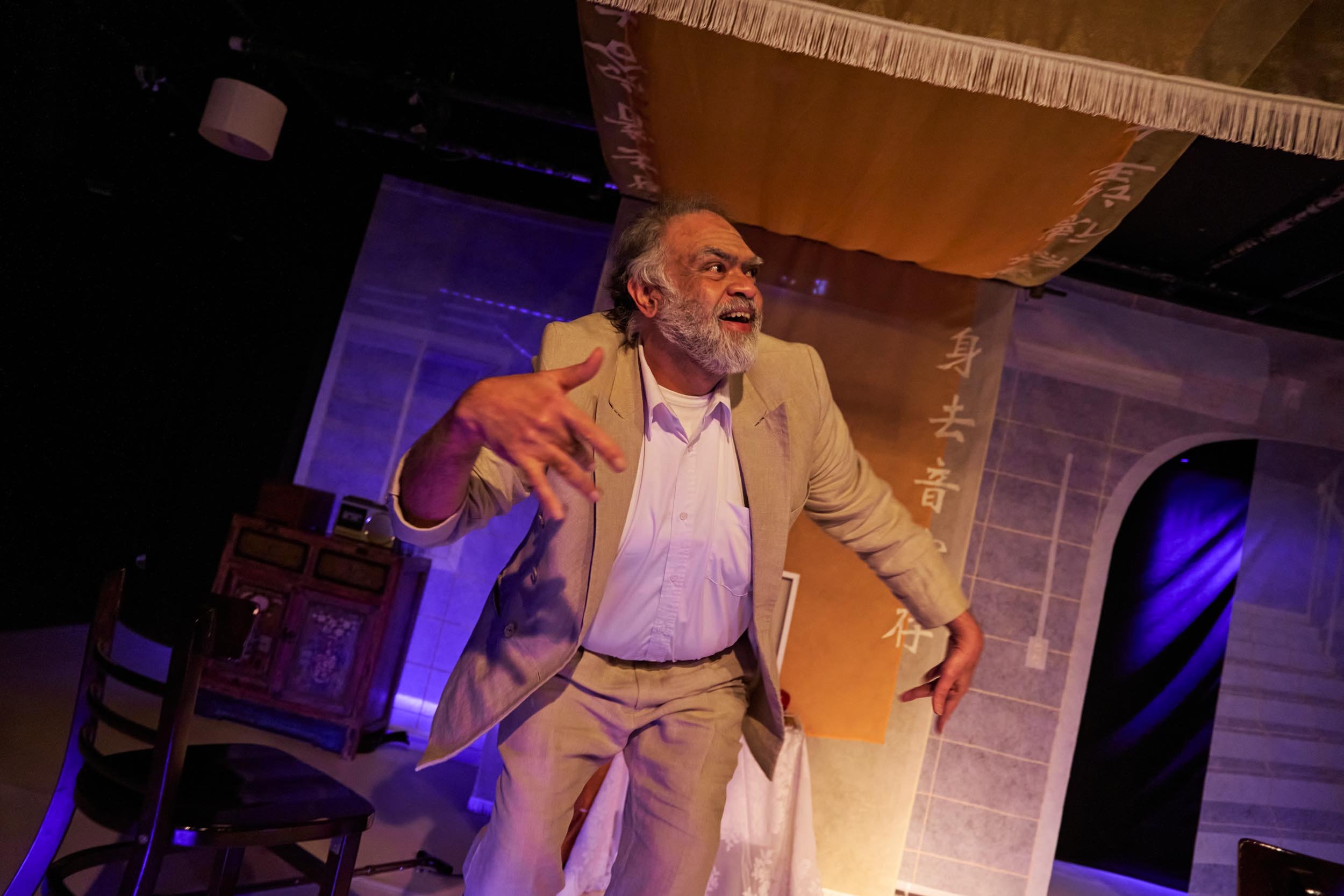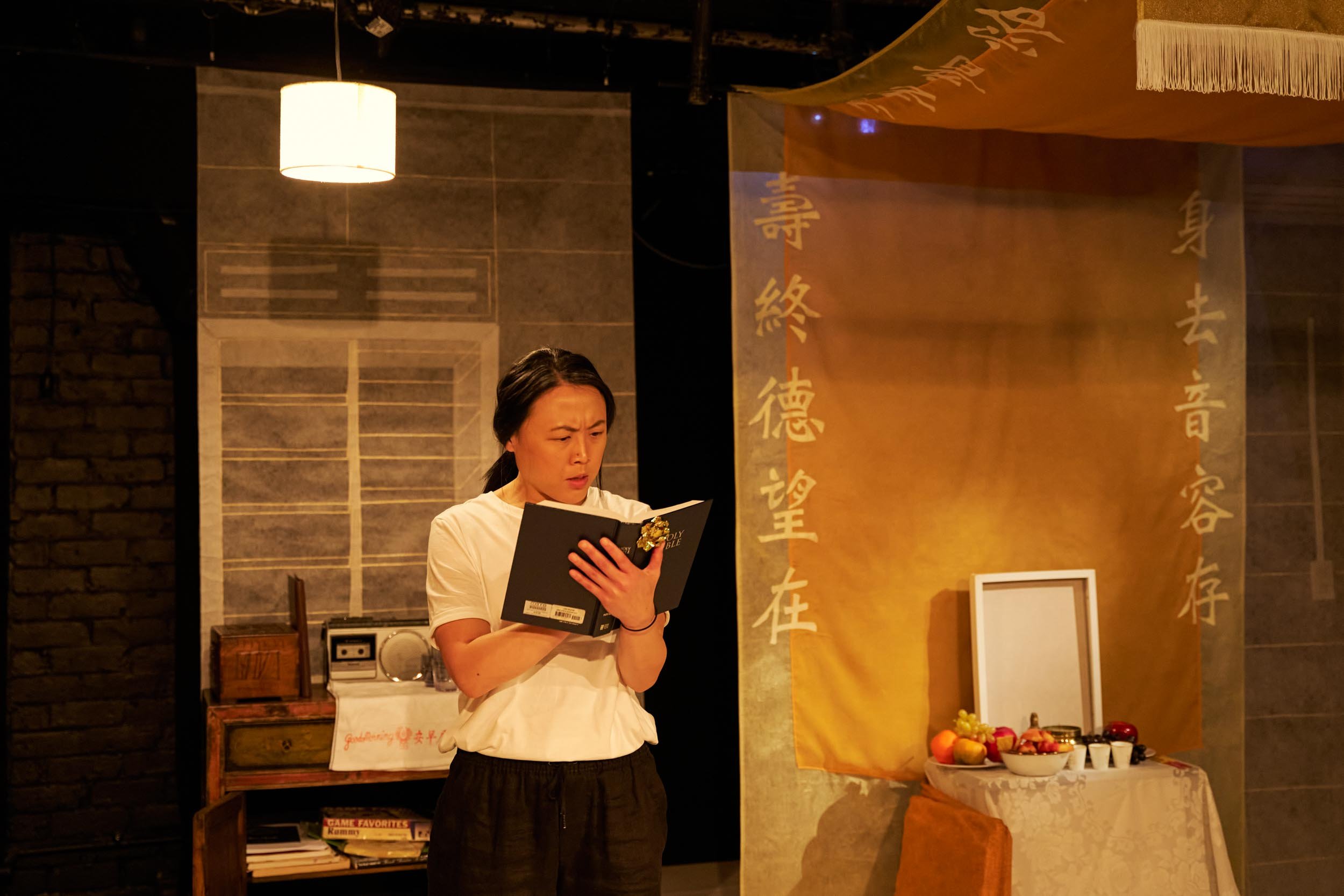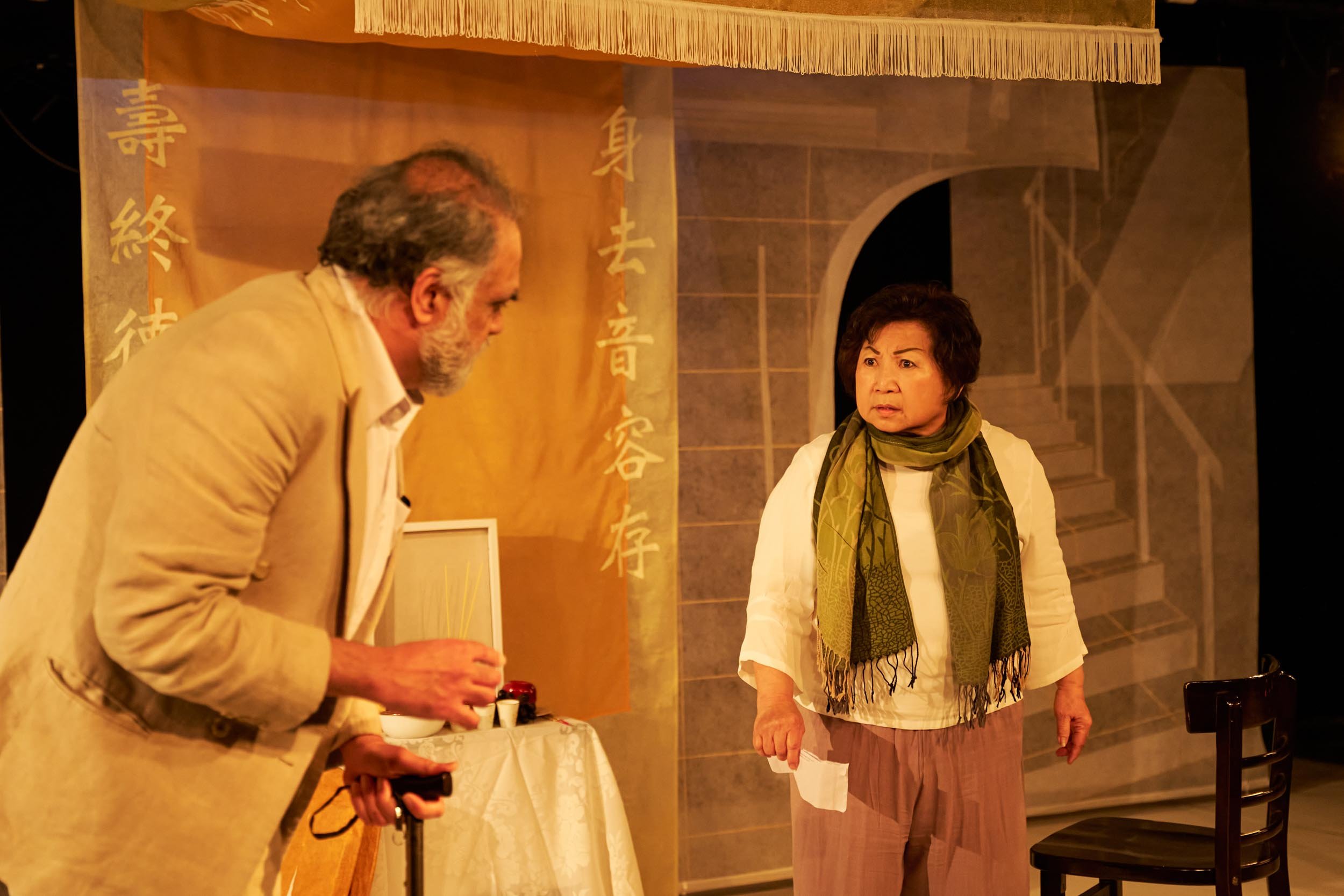How to Throw a Chinese Funeral 婆婆再见
A play by Jill Kwan
When Lily and Anna’s grandmother passes away, they must reunite with their family in Malaysia to orchestrate her Taoist funeral - a custom lost even to their headstrong mum and outrageous Auntie.
Role
Set Design
Year
2023
Co-Produced By:
Hand Pulled Collective
Proudly Asian Theatre
Venue
Basement Mainspace
Creative Team
Co-Producers - Natalya Mandich-Dohnt, John Rata
Playwright & Director - Jill Kwan
Lighting & Scenet Design, Operator - Rae Longshaw-Park
Props Design - Cinta Damerell
Props Assistant - JingCheng Zhao
Set Design Mentor - John Veryt
Set Assistant - Tema Pua
Shadow Puppetry & Projections Design - Darryl Chin
Shadow Puppet Assistant - Yin-Chi Lee
Music Composition & Sound Design - Fiona Chua
Directing Mentor - Ahi Karunaharn
Dramaturge - Renee Liang
Cantonese Translation & Coach - Audrey Chan
Marketing Mananger - Jennifer Cheuk
Photography - John Rata
Stage Manager - Lisa Joe
Cast - Lisa Zhang, Ann An, Janet Tan, Yoong Ru Heng, Mustaq Missouri and Charles Chan
What drew me to this project was the fact that it was based in Malaysia. As a New Zealand born Malaysian-Chinese, I cannot recall any other time I have heard my parents’ accents and our culture depicted on a New Zealand stage. Jill’s directorial vision was ambitious, involving puppetry and projection, which made for fun design challenges.
婆婆 Po Po’s altar is the obtrusive “mountain” at the centre of the story, which all the characters and plot revolves around. Drawing upon Taoist and Buddhist beliefs, that the spirit remains on earth for a few days before going to heaven, I wanted to extend the altar to the entire house. I drew inspiration from the materiality of Chinese paper offerings and joss paper.
In Chinese ancestor worship, burning paper offerings is a physical expression of kinship and filial piety to ensure the wellbeing of the deceased in the afterlife.
Suspended white screens displaying the architecture of the house form the joss paper backdrop to the golden centre of the altar. This transforms the house into a transient space, the meeting place between the living and the dead, past and present. As character Yi explains, “ [婆婆 Po Po] is still with us!”.


